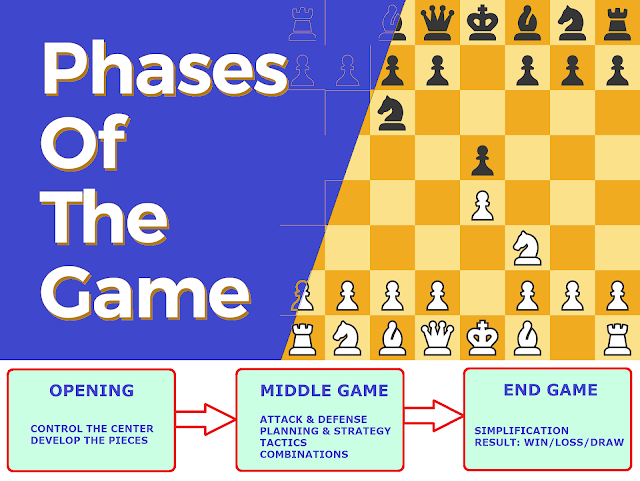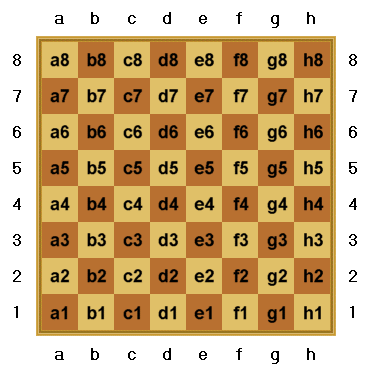Sunday, September 5, 2021
Monday, August 30, 2021
Saturday, August 14, 2021
Thursday, August 12, 2021
Mikhail Nekhemyevich Tal
Article by Pranav Nagesh
Mikhail Tal was a great chess player.
He was born on November 9, 1936 in Riga, Latvia and was taught chess by his father. By the age of 6, he was a prodigy in Chess, defeating players much stronger than his age.
He was a genius and was referred to by his peers as a magician in chess. He became the 8th World Champion defeating Mikhail Botvinnik in 1960. At the age of 23, he was the youngest person to hold the World Championship title.
Mikhail Tal was a fierce attacking player. There are many famous games of Mikhail Tal defeating many top grandmasters. Brilliant sacrifices, unforeseen combinations and unexpected attacking resources was the unique style of Mikhail Tal.
He played openings like Sicilian Defense (with both colors), the King's Indian Defense, the Modern Benoni Defense and the Ruy Lopez.
Unfortunately Tal died at a young age on 28 June 1992. He died in a Moscow hospital, after a prolonged illness, officially of a hemorrhage in the esophagus as he used to smoke a lot.
The great Tal is still alive in his brilliant games. Below i present one of his miniature games.
White: Mikhail Tal
Black: Jan Timman
Skopje Olympiad Final, 1972
1.Nf3 g6 2.e4 d6 3.d4 Nf6 4.Nbd2 Bg7 5.Bc4 O-O 6.Qe2 c6 7.Bb3 Bg4 8.e5 dxe5 9.dxe5 Nd5 10.O-O Nd7 11.h3 Bf5 12.Re1 Qc7 13.Nf1 Rad8 14.Ng3 Be6 15.Qe4 Rfe8 16.Qh4 f6 17.Bh6 Nxe5 18.Rxe5 fxe5 19.Ng5 Bf6 20.Nxe6 1-0
Tuesday, July 20, 2021
Thursday, July 1, 2021
Monday, June 21, 2021
Wednesday, June 9, 2021
Types of Center control in Chess
There are 2 types of Center control in Chess: Direct and Indirect
Direct control --> Pawns --> Occupy and Control the Center
Indirect control --> Pieces --> Control the Center remotely
Direct control (pawns) is better than Indirect control (pieces).
Thursday, June 3, 2021
How to defend a Check in Chess
1. Move the King away from Check
2. Block the Check with another Piece/Pawn
3. Capture the Piece/Pawn giving Check
More details on my Lichess study
Sunday, May 23, 2021
Chess Coordinates Training
Here is the link to practice Chess coordinates.
Square Name = File Name + Rank Name
Sunday, April 25, 2021
Wednesday, March 31, 2021
Wednesday, March 24, 2021
Monday, March 15, 2021
Opening Repertoire for Beginner Chess Players
In my experience as a Chess coach, the below Openings (with variations) are the best choice to prepare a Repertoire for Beginner Chess players.
The variations are selected due to their similarity in Pawn structure.
The variations are selected due to their similarity in Pawn structure.
The ECO Codes are in Blue color.
Playing as White
1. Giuoco Piano Bd2 Main Line C53
2. Giuoco Piano Nc3 Gambit Line with 9....Ne5 C54
3. Giuoco Piano Nc3 Gambit Line with 9....Bf6 C54
4. Four Knights opening C49
5. Scotch opening C44
6. Smith-Morra Gambit B20
7. Kings Gambit Accepted C33
8. Ruy Lopez Modern variation C71
9. Sicilian Alapin variation B22
10. French defense Exchange variation C01
11. Caro-Kann defense Exchange variation B13
12. Pirc Defense Modern variation B07
13. Alekhine Defense Main line B04
14. Center-Counter defense B01
15. Philidor defense C41
16. Modern defense B06
Playing as Black
1. Two Knights Defense C55
2. Kings Gambit Declined C30
3. Ruy Lopez Exchange variation C68
4. Queens Gambit Declined Tartakower variation D59
5. English opening A10
6. Reti opening A04
Thursday, February 18, 2021
Me, my Chess and FIDE Instructor Title
Article authored by Nagesh Jayaram (FIDE ID 5058414) for the AICCF Bulletin Feb 2021.
Chess has been probably the only sport which has become more popular during the Covid pandemic. More people have started playing Chess, more events were organized Online, and thanks to Technology, the Chess players found new ways to play with each other, share their experiences and continue their Chess journey.
One of the commercially rewarding activities has been Chess coaching. As more and more children are learning Chess, there is a rush for Parents to find Online mediums for playing, practicing and learning Chess. This increase in demand has fueled the rise of many more coaches who are ready and available to teach Chess.
However, it is very difficult for parents to differentiate between the available coaching options because many of them are not very knowledgeable in the technical aspects of Chess. Also coaching is an Art and not every good player can become a good coach. Great Coaches and Trainers inspire their students to achieve their highest potential. The relationship between the coach and student is an interesting and sensitive one, it is not about what the coach wants to do, but it should be about what the student is capable of doing.
Even though i have been coaching students for the last 20 years, i realized the importance of gaining a formal Qualification in Chess Coaching. It would be like a validation for the parents and give them more confidence in myself as a Coach.
FIDE (The International Chess Federation) offers several Titles for aspiring Coaches. The process for getting these titles is explained in the details in the below link:
http://trainers.fide.com/
FIDE (The International Chess Federation) offers several Titles for aspiring Coaches. The process for getting these titles is explained in the details in the below link:
http://trainers.fide.com/
Various FIDE endorsed Academies organize Seminars in which reputed Grandmasters who have good experience in Coaching train the attendees in various aspects of Chess coaching and explain the required Chess knowledge. It is required to formally apply to these Seminars and confirm the attendance to them. Below is the link listing the upcoming seminars:
http://trainers.fide.com/category/seminar-news/upcoming-seminars/
http://trainers.fide.com/category/seminar-news/upcoming-seminars/
Few important points to remember is that weightage is given to the actual strength of the Coach as a chess player (measured by FIDE Rating). The experience of the Coach in Training, the level of students trained, the results achieved by the students and the years since the coach is training, all these matter in evaluation for awarding the Title.
Personally for me, my experience with AICCF helped me in practicing the forgotten art of Analysis in Chess. Especially in Online Chess, Blitz and Bullet formats are very popular. So detailed analysis of a position to find out the best moves is crucial to improving your strength as a Player or a Coach.
Thursday, January 28, 2021
Anatoly Karpov
Grandmaster Anatoly Karpov is considered to be one of the greatest chess players of all time, and is the 12th World Champion in chess (1975-1985). He was born on May 23rd, 1951, in the city of Zlatoust, Russia. Karpov had started playing chess from the age of four. Due to his talent he had shown, his career started to grow immensely, and over time, he earned the Grandmaster title at the age of 19. Some of Karpov’s most notable games are, Karpov vs Kasparov, 1984, Karpov vs Anand, 1998, Karpov vs Spassky, 1979, and so forth. In 1969, Karpov was the first Soviet player to win the World Junior Chess Championship title. Therefore, we can see that Anatoly Karpov was one of the greatest, most brilliant, and most dominant chess players of all time.
Subscribe to:
Posts (Atom)
















